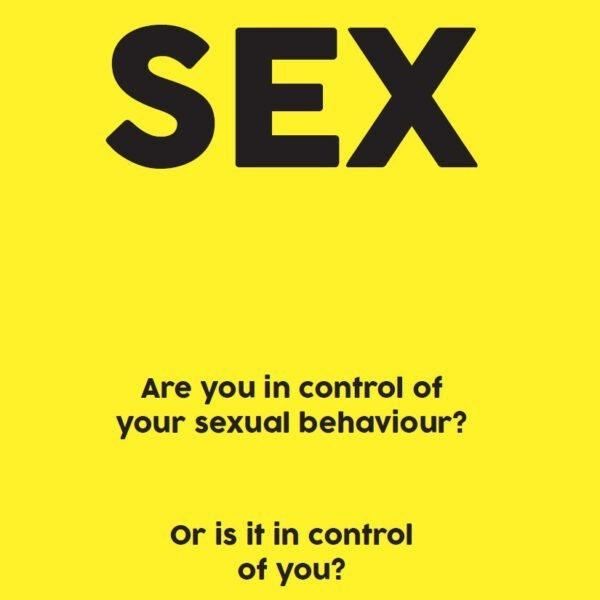Subtotal: £0.00
Healthcare Professionals & Academics
Sex addiction is defined as compulsive sexual behaviour that a person cannot stop doing, despite severe negative consequences.
Types of out of control sexual behaviour include:
- Promiscuity
- Dependent relationships
- Abusive relationships
- Compulsive masturbation
- Excessive use of internet pornography
- Inappropriate chat & dating sites
- Anonymous sexual encounters
- Exhibitionism
- Sex work
and much more besides.
Some of the negative consequences due to compulsive sexual behaviour include:
- Breakdown of romantic relationships
- Loss of job or career
- Exposure to AIDS and STDs
- Unwanted pregnancies or abortions
- Legal risks and offending
- Suicidal feelings and attempts
- Imprisonment
- Social exclusion and Ostracisation
As addicts, we risk our health, our freedom, even our lives.
If the consequences alone were enough, we would’ve been able to stop on our own.
Causes
Addicts come from all walks of life. We are people of all genders, young and old, gay and straight, of all ethnic and religious backgrounds.
Some of us feel we were abused as children, sexually, physically or emotionally.
Many of us report growing up in families in which addictions already flourished, including alcoholism, eating disorders, workaholism, compulsive gambling and even sex addiction.
Whilst most people think sex addiction is about sex, it’s not. It’s about deep feelings of unworthiness and shame.
Early on and as adolescents, many of us used sex as a way to block these intolerable feelings of shame. As we grew into adulthood, these behaviours progressed and started to gather significant negative consequences.
The solution
The programme of SAA represents an important addition to any therapeutic initiative.
Whilst therapy is expensive and usually weekly, fellowship meetings go on every day of the week, all year round, at any time of the day or night and are free.
By surrendering again and again to the discipline of meeting with others who have similar struggles, we find that in our honesty, we confront our disease by bringing it out of the shadows and into the light, to deprive it of its source of power over us and to safely disperse our secrecy and shame.
What other resources does SAA offer?
We offer a diagnosis tool so you can see the scope of sexual behaviours and their consequences.
Get in touch
Phone or text our helpline on 07748 168164 to leave a message on our voicemail.
Email us at info@saauk.info. We will get back to you as soon as we can.
Attend an SAA meeting
Look for Open meetings on the UK website or international open meetings, where professionals interested to learn more about the fellowship may join an Open recovery meeting.
SAA Literature
Check out our programme literature, which can be accessed for free online or ordered through the SAA website Shop. There are a number of starter pamphlets and posters for health professionals.
2021.07.13
 SEX. Are You In Control of your Sexual Behaviour? (download) (Yellow)
SEX. Are You In Control of your Sexual Behaviour? (download) (Yellow)